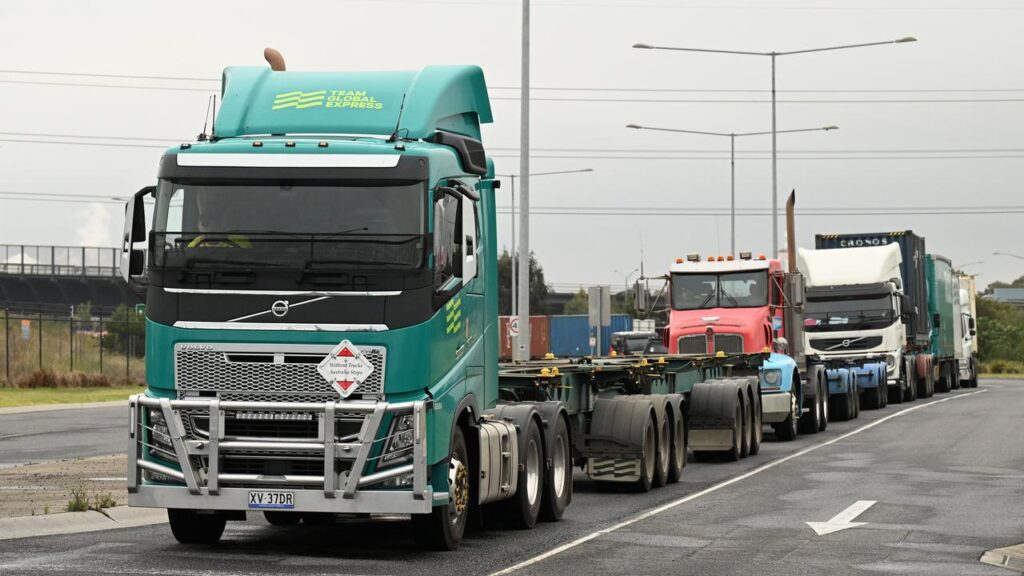Ditch the diesel: the five sectors urged to go green
Jennifer Dudley-Nicholson |

Australia is at risk of missing its environmental targets unless it addresses its addiction to diesel fuel in areas such as farming, forestry, fishing, freight and mining.
The Australian Academy of Technological Sciences and Engineering issued the warning on Wednesday in a study that investigated barriers to reducing emissions in heavy industry and potential solutions.
But major government policy and financial reforms would be required to reduce emissions, the report found, as businesses would otherwise be penalised for investing in ways to ditch diesel.
The findings come amid heightened political debate over climate targets by the coalition, and one week after Climate Energy Finance called for changes to Australia’s diesel tax credit scheme.
The academy’s report, created in partnership with mining giant Fortescue and called Decarbonising Diesel Industries, found diesel combustion represented 17 per cent of Australia’s carbon emissions.
It identified Australia’s mining, freight, agriculture, fisheries and forestry sectors among the nation’s largest diesel users, fuelling equipment and transport, and named potential solutions as electrification, biofuels and green hydrogen.

The study also identified barriers to swapping diesel for greener alternatives, with cost rated as the most significant hurdle, followed by a lack of infrastructure and regulatory barriers.
Industries would need help to change the way they fuelled everything from tractors and excavators to long-haul trucks and ships, academy chief executive Kylie Walker said, but reforms were necessary.
“We are trying to reach net zero by 2050 but if we’re going to get there, these sectors need to urgently decarbonise,” she said.
“What we don’t want is for us all to pretend that we didn’t see it coming and have to do things in a hurry in another 10 or 15 years, which could cause potentially a massive market shock and may also be a little bit too late.”
The best diesel alternative would depend on each industry and each business within it, AgriFutures Australia director Andrew Campbell said, although some sectors could play a role in creating low-carbon solutions.
“Ag is a big emitter – it’s incredibly reliant on diesel – but agriculture can be part of the solution too as a producer of some of these alternatives, whether it’s solar, battery systems or various biodiesel or biogas alternatives,” he said.

The report recommended an independent assessment of decarbonisation pathways, a national future diesel strategy, and a review of incentives currently supporting diesel use.
Introducing a cap on diesel tax subsidies given to businesses could play a big role, Dr Walker said, as they were artificially lowering the price of the emissions-heavy fuel.
“We think the Fuel Tax Credit Scheme is a massive impediment to the uptake of alternative fuels,” she told AAP.
“Those companies are getting subsidies to use diesel which seems really at odds with the commitments that the government’s made to decarbonise, and certainly at odds with a sustainable, circular and low-carbon economy.”
Australia’s environmental targets include reducing greenhouse gas by 43 per cent and generating 82 per cent of electricity from renewable sources by 2030.
AAP